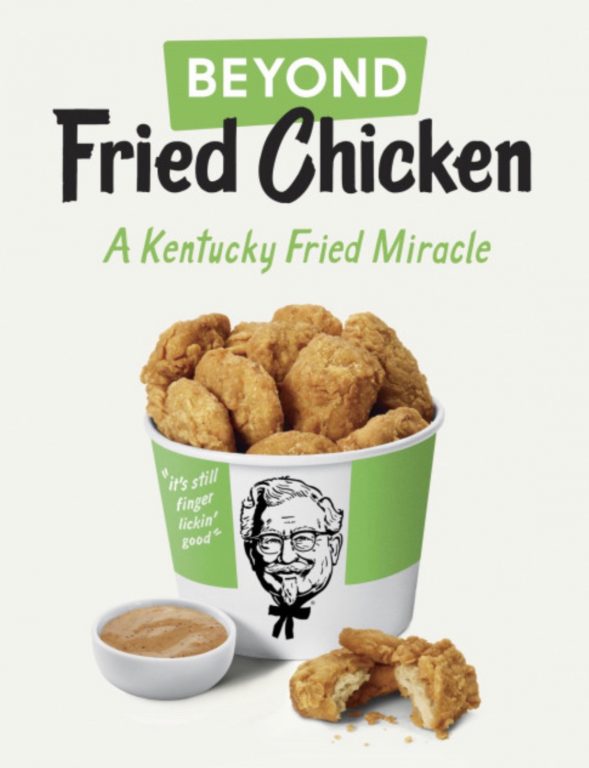“Artificial Meat” (Beyond Meat, Inc.) prevents food shortages, food loss, and global warming!

This is a poster advertising the “New Fried Chicken” made from “artificial meat” made from vegetable protein made from soybeans by Kentucky Fried Chicken in the U.S. (the current material is a Beyond Meat product). The product will finally go on sale in the U.S. on July 20 (tomorrow). I wonder if it will be available in Japan, too.
The new menu seems to be a response to the growing health consciousness, partly due to the lack of exercise caused by the new Corona.
It is “agri-tech” (Agriculture x Technology) “food tech” that makes these things possible.
Combining IT with agriculture will also make it possible to tinker with the genome of foodstuffs to increase efficiency. There is a wide range of fields such as cellular agriculture (agriculture using cell culture) and vertical agriculture (agriculture using high-rise buildings and sloping surfaces). The artificial meat market is seeing an increasing number of entrants, mainly venture companies and major food companies, due to the expansion of veganism (vegetarianism).
The global artificial meat market went from 80 billion yen in 2017 to 120 billion yen in 2008. Although still small in scale, a burger restaurant I visited the other day in Roppongi had an artificial meat burger.
There are three factors behind the future popularity of artificial meat made from soybeans (“alternative meat,” “cultured meat,” “fake meat”…I am sure a new genre of naming is needed for this). These are food shortages due to population growth, food loss, and the food crisis caused by global warming.
These issues are also key issues in the Sustainable Development Goals (SDGs) adopted by the United Nations from the perspective that grains can drastically reduce water use compared to meat.
Beef farming is particularly environmentally hazardous, and cattle produce large amounts of greenhouse gases (methane gas).
Because of its thriving cattle industry, Australia is a greenhouse gas emitter. Isn’t that great?
It takes about 11 kg of feed to produce 1 kg of beef and 20,000 times the amount of water needed.
This is how high the environmental impact of beef is. The same goes for pork and chicken.
For this reason, there is a growing number of vegetarians and vegans in the West who reduce the amount of meat they eat, or even more thoroughly. I’d better watch out myself!
Beyond Meat (English: Beyond Meat) is an American food technology company headquartered in El Segundo, California, that produces and develops plant-based artificial meat.





